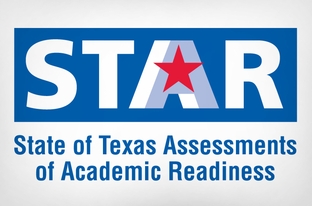This had to happen, given everything else.
In an unprecedented move, Gov. Greg Abbott announced Monday he would waive testing requirements for this year’s STAAR exam, as many schools expect to be closed at least through the April testing window, due to the new coronavirus.
He also said he would ask the federal government to waive this year’s federal standardized testing requirements, which apply to all states. According to the state, as of Sunday afternoon, 569 school districts had announced closures due to coronavirus concerns. Texas is not alone, since more than 30 states have closed schools due to coronavirus, affecting at least 30 million public school students nationwide.
The federal government has previously said it might give out targeted waivers from testing for areas where the COVID-19 disease has had significant impact.
The state will not mandate that districts offer the exam, but some superintendents may want the test data to see how their students are doing, according to the TEA. Agency officials are working to support those school districts, if necessary.
[…]
State leaders are giving schools more leeway than they have in the past, showing the increasing seriousness surrounding the COVID-19 disease.
When Hurricane Harvey decimated Houston-area and Coastal Bend communities in 2017, [TEA Commissioner Mike] Morath hesitated to give them a break on testing or accountability requirements, arguing that doing so would harm student learning. He argued that getting rid of state testing requirements would violate federal requirements and put federal funding at risk.
Eventually he agreed not to hold poor STAAR results against schools and districts, though he did not waive the requirement that they test students.
“Accountability results have been waived for Hurricane Katrina, Hurricane Ike, Hurricane Harvey. But never has testing itself been waived,” said Dee Carney, a longtime school accountability consultant in Texas. “It’s absolutely an unprecedented event requiring extraordinary measures of our schools and our teachers and our communities.”
It is not clear exactly what the implications are for students who need to take certain state tests in order to graduate from high school or move on to the next grade. Morath said he would send more specific guidance on student testing and school accountability this week, likely before Thursday.
So three things here. One, given the likely closure of schools through the rest of the academic year, this was basically inevitable. There’s too much disruption, and the test results would be essentially meaningless. Which was the same argument lots of people made following Harvey in 2017, but this time the message was received. Two, this is going to be a months-long, if not years-long, experiment in unprecedented actions and figuring things out as we go, because what else can we do? And three, we just may find out that some of the things we’d been doing all along we can do without, or do differently, and some things we’d never done before become new habits. That’s what happens with big disruptions. Maybe one result of all this is we’ll completely re-evaluate the need for high-stakes testing like we have now. Or maybe we’ll decide we need even more of it. I don’t know what will happen, but I’ll bet that five years from now when we look back on all this, we’ll be amazed at how different things became.

